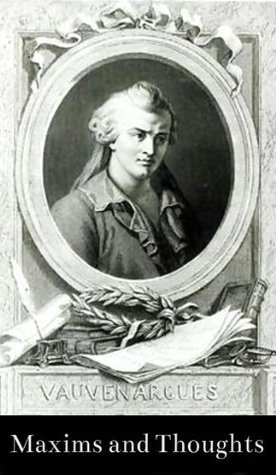What do you think?
Rate this book


200 pages, Kindle Edition
First published January 1, 1746
When great men told weak people to reflect, they put them on the path to error.
The weak sometimes want to be thought of as wicked; but the wicked want to pass for good.
The usual reason that people give for making others unhappy is wanting what is best for them.
The advice of old people spreads light without warmth, like the sun in winter.
Unimaginative people save themselves from their lives by talking a lot.
Wicked men are always surprised to find cleverness in good ones.
When a person doesn't want to hide any part of his intelligence, he usually lowers its reputation.
What we call a brilliant thought is usually just a captivating expression which, with the help of a little truth, imposes a surprising error on us.